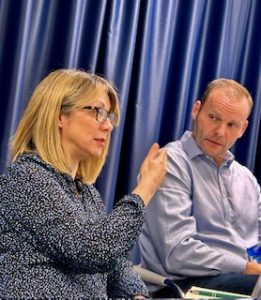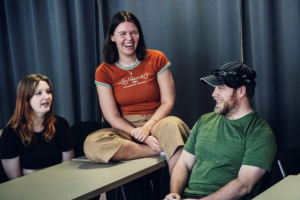AI Impact Raises Questions Over Future of Cities

Tracy Westall, Chair of technology firm Curium Solutions, threw a well-articulated challenge down at our recent round table on how business adapts to challenge and change.
For a business news site based in the regions it raised a fundamental concern over the impact artificial intelligence (AI) could have on cities and regional economic planning.
It was a timely intervention at TheBusinessDesk.com roundtable discussion, held at Gilbanks in Manchester, as Westall noted that while the pandemic highlighted remote working possibilities, AI adoption risks accelerating job replacement in some sectors.
Westall then questioned “what the future of cities looks like in that different world” if AI automates tasks currently performed by humans. With AI capabilities outstripping the pace of human adaptation, Westall warned policymakers face a “dilemma” in keeping up. She argued integrated strategic thinking is needed on an “economic policy level for a region, which affects everybody.”
She added: “I’m really curious how we reconcile, particularly at a regional level, that placemaking strategy piece.”

John Crellin from Jon Matthews Architects summarised some of the thinking in the architecture and design field, and revealed that asset holders – funds that own the buildings – are the drivers of change.
“The Hive in the Northern Quarter in Manchester really turned office design on its head and 15 years later, the principles that were set in that office, which is about natural ventilation, reduced energy, net zero, wellness, are now at the forefront of office design.
“Wellness is at the core of everything that we do. Ground floors of office spaces have changed, previously it was all that retail units to maximise the ground floor. Now it’s about wellness and social value.
“They’re about cycling facilities, they’re about gyms, they’re about lounges, and it’s about that sort of space that we’re bringing into offices now in order to attract people to come in. But it’s also about what people want, as well. And in turn that influences what the funds are demanding as well.”
Westall pointed to cities like Paris that are actively planning infrastructure to support future mobility needs. Dan Hyde of MEPC noted Paris has committed Euro100 million annually to create green transport corridors, prioritising walking, cycling and public transport over private vehicles. With strong vision and decision making, Hyde believes Paris is well placed to thrive through this technological disruption.
She concluded by emphasising the importance of data quality for informed discussions on AI’s societal impact. As a technology advisory board member, Westall is urging joined-up policy making between government, employers and skills providers to help communities navigate disruption and maximise opportunities from emerging technologies.








